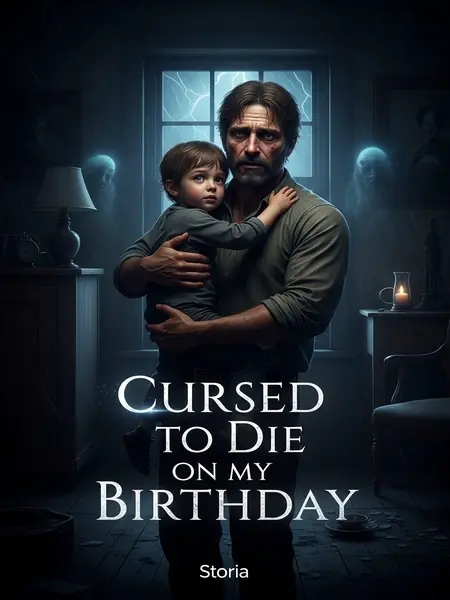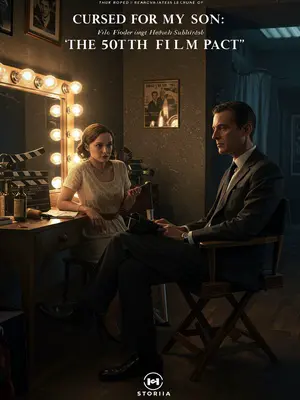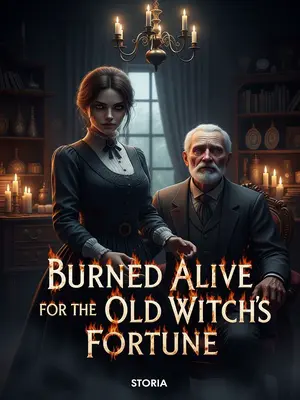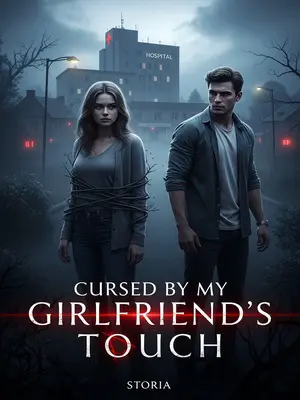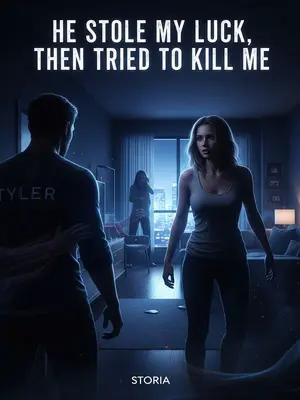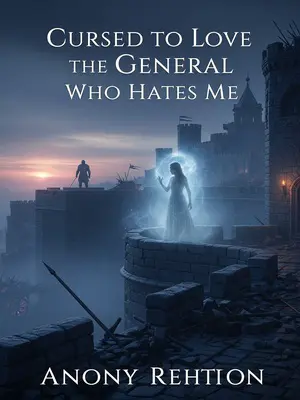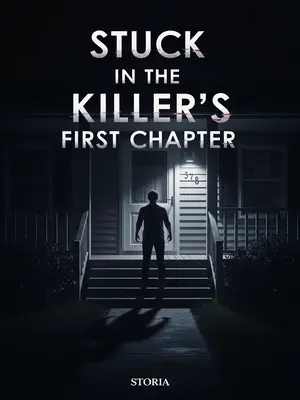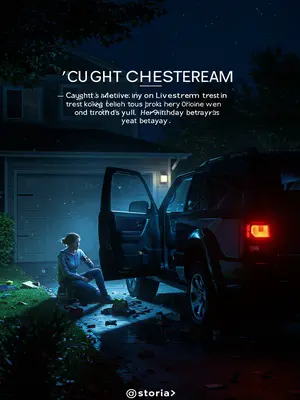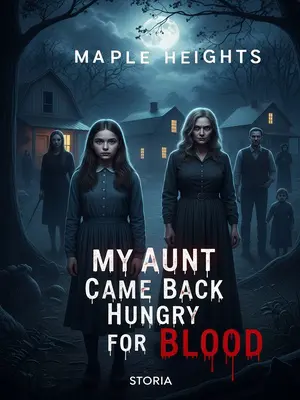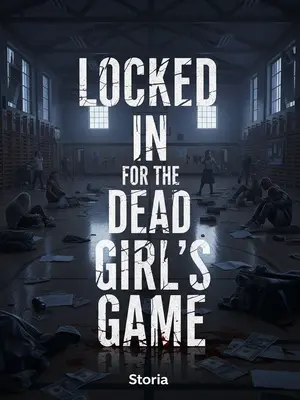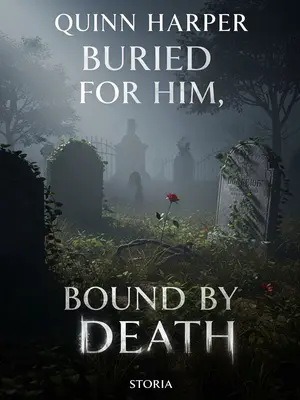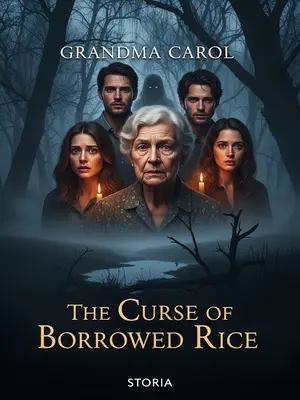Chapter 3: Hiding Out from Fate
If I told anyone else about my suspicions, they’d say I was just paranoid—afraid of dying, making a big deal out of nothing.
I pictured my friends at the bowling alley rolling their eyes. Even my brother-in-law, who once bought a haunted doll off eBay, would probably laugh.
But if I told a spiritual advisor, maybe he’d believe me. Maybe he’d have a solution.
So I found a small brick church on the edge of town, with a white steeple and a faded sign for bingo nights. The pastor met me in a threadbare Cardinals hoodie, eyes sharp and kind.
He folded his hands and thought. "You know, some families do seem to carry a kind of bad luck. And yours…well, it sure sounds like something’s got its hooks in you."
He spoke softly, but conviction thrummed in his words. The air in his office felt heavy, the scent of candle wax and old hymnals thick in my nose.
His gaze was sharp as a knife. "Do you have a son?"
He leaned forward, elbows on the battered desk, like he already knew the answer.
"Yeah, I have a son."
My voice cracked, hands twisting in my lap. My boy’s gap-toothed grin flashed in my mind. My heart clenched.
"If only it were a daughter," he sighed. "Girls aren’t touched by this kind of curse. They might live long. But your son definitely won’t make it past twenty. You’ll die on your thirtieth birthday, and your son won’t live past twenty."
Twenty. My heart twisted up. Twenty years old—how could that be? So young.
I pictured my son as a college freshman, not even old enough to buy a beer. The thought of losing him crushed me.
I panicked, grabbing the pastor’s sleeve. "Pastor, please save my son. Save me. I don’t want to die so young, and even less do I want my son to die. He’s just a kid."
"There’s always a way. God cherishes life. Since you’ve come to me, I’ll do my best."
He squeezed my shoulder, grip firm. Stained-glass light painted rainbows on the floor. For a moment, hope sparked inside me.
With his words, I relaxed a little, but I couldn’t let my guard down.
I wiped my eyes, trying to steady my breath. I clung to his promise like a lifeline, but part of me knew the fight wasn’t over yet.
Now my thirtieth birthday was right around the corner. If he couldn’t break the curse, I might really die then. Who wants to die while still young and healthy?
The days flew by—each sunrise sharper, each sunset shorter. I dreaded the tick of the clock, the shuffle of the calendar pages on the fridge.
The pastor’s solution: I should live at the church from now on.
He offered me a cot in the back room, near the kitchen where the Sunday school kids kept their Kool-Aid and animal crackers. No visitors, no phone.
Don’t leave the grounds, don’t contact anyone, don’t tell anyone I’m here—just disappear.
He locked away my cell phone, handed me a battered Bible and a deck of cards. The church’s faded mural of Noah’s Ark looked out over a row of folding chairs. Most days, the only sounds were the buzz of the old fridge and the crows outside.
He was firm: "Thirty is the hurdle. If you get past it, you’ll live a long life, free of worries. If you can’t, your story ends here. Hide here, and those evil spirits can’t find you, so they can’t do anything to you."
His tone left no room for argument. The wind rattled the stained glass, making candle flames dance. My heart thudded in my chest.
"I want to let my family know I’m safe. If I disappear for over two months, they’ll be worried sick."
I tried to bargain, picturing my wife’s frantic texts, my mom’s worried phone calls. The thought of them not knowing almost broke me.
I could quit my job, that’s fine, but I have to let my family know I’m okay. If I don’t contact them for over two months, my mom, wife, and son will be frantic.
I played out every scenario—missing posters, panicked voicemails, police at my mom’s door.
But the pastor shook his head. "No. Evil spirits could be anywhere, in anyone. If you reach out, they could find you, and once they do, you’ll never escape."
His eyes were serious, and for the first time I believed in curses, in ghosts, in things that lurk just out of sight. I bit my tongue and nodded.
I wanted to say more, but seeing his determined eyes, I couldn’t get a word out. He’d explained the consequences—if I didn’t listen, I’d be asking for it.
The old floorboards creaked under my feet. I paced the little back room for hours, the weight of the decision pressing down.
So I gritted my teeth and agreed.
I looked the pastor in the eye, hoping he saw my desperation. I owed it to my family to try.
If I survived, I could go back and apologize to my wife, son, and mom, and spend decades with them.
I pictured birthday parties, Christmas mornings, summer barbecues. I clung to those images.
But if I just died, my mom would lose her son in middle age, my wife would be widowed young, and my son would lose his dad as a kid—how awful would that be?
I remembered my dad’s funeral, the way my mom’s shoulders shook as she held my hand. I swore I’d never do that to my family.
So I stayed at the church. Day after day, it was tough.
Each morning I woke to church bells and birds arguing in the eaves. I swept the sanctuary, stacked hymnals, mopped ancient linoleum. At night, I lay awake, counting cracks in the ceiling.
I cut off all contact, ditched my phone and laptop, and followed the pastor every day, helping with the grounds or praying.
We played chess in the afternoons, his moves slow and deliberate. Sometimes he told me stories about his own family, about faith and doubt and the small miracles that keep us going. It helped, a little.
It was boring and lonely, but mostly, I was anxious—counting the days, waiting for that day to come.
The world shrank to the size of the church: the creak of pews, the hum of the old fridge, the crows. Each day bled into the next, but the fear never left.
Not knowing if I’d live or die was almost worse than death.
I scribbled in the margins of my Bible, journaled my fears on church bulletins, prayed for sleep that never seemed to come.
In this painful limbo, my thirtieth birthday finally arrived. The night before, I was a wreck.
The storm outside rattled the windowpanes. I sat on my cot, knees pulled to my chest, listening to the rain drum the roof. My hands shook as I tried to pray.
My heartbeat felt off, just like the pastor said—like evil spirits, like those two reckless cars that almost hit me on my birthday.
Each thump felt like a countdown. My mind replayed every close call—every moment I should have died but didn’t.
And my wife’s cooking—the random food poisoning—these were all things that shouldn’t have happened, but they did, on that day. Totally bizarre.
I closed my eyes, picturing the kitchen, the sound of my son’s laughter, the smell of her lasagna. Was it all just fate, or something darker?
So what would happen today? Would I stop breathing in my sleep? Choke on water? Get food poisoning again? Or slip and fall?
I imagined every possible way things could go wrong—freak accidents, silent killers, plain old bad luck. My mind spun out of control.
Anything could happen. People are so fragile.
Even the sound of the furnace kicking on made me jump. I wondered if anyone would find me in time if the worst happened.
I kept thinking about how I might die.
My thoughts spiraled, looping until I couldn’t tell anxiety from reality. I squeezed my eyes shut, trying to will myself to sleep.
But in the end, I realized I really didn’t want to die. I was terrified. I just couldn’t die.
The thought of leaving my family behind broke me. I clung to the hope that faith, or luck, or stubbornness would get me through the night.
But the pastor was calm, like today was any other day. But I knew he knew what day it was.
He moved quietly through the halls, humming a hymn under his breath. His calm was contagious, but I saw the worry in his eyes.
Because that night, he didn’t sleep either, and called me into his office. The two of us sat facing each other.
The clock ticked loudly between us. He poured two mugs of tea, the steam curling in the dim light. The silence stretched on, comfortable in its own way.
There was no one else in the church. The so-called church was really just a small house on the edge of town. He was said to be a lay minister.
The building creaked with age, the walls lined with faded Sunday school drawings. Outside, the storm had finally let up, the world washed clean.
For more than two months, it was just the two of us.
We’d become something like family—two lonely souls in the same lifeboat, waiting out the worst together.
I almost completely trusted and depended on him. Just after midnight, the pastor opened his eyes and smiled at me: "The storm has passed. Go home."
His words landed like a benediction, warm and certain. I let out a shaky laugh, relief flooding me. The clock on the wall clicked over to 12:01, and I realized—I’d made it. I was alive. But as I stepped out into the dawn, I couldn’t shake the feeling that something out there was still waiting for me.
